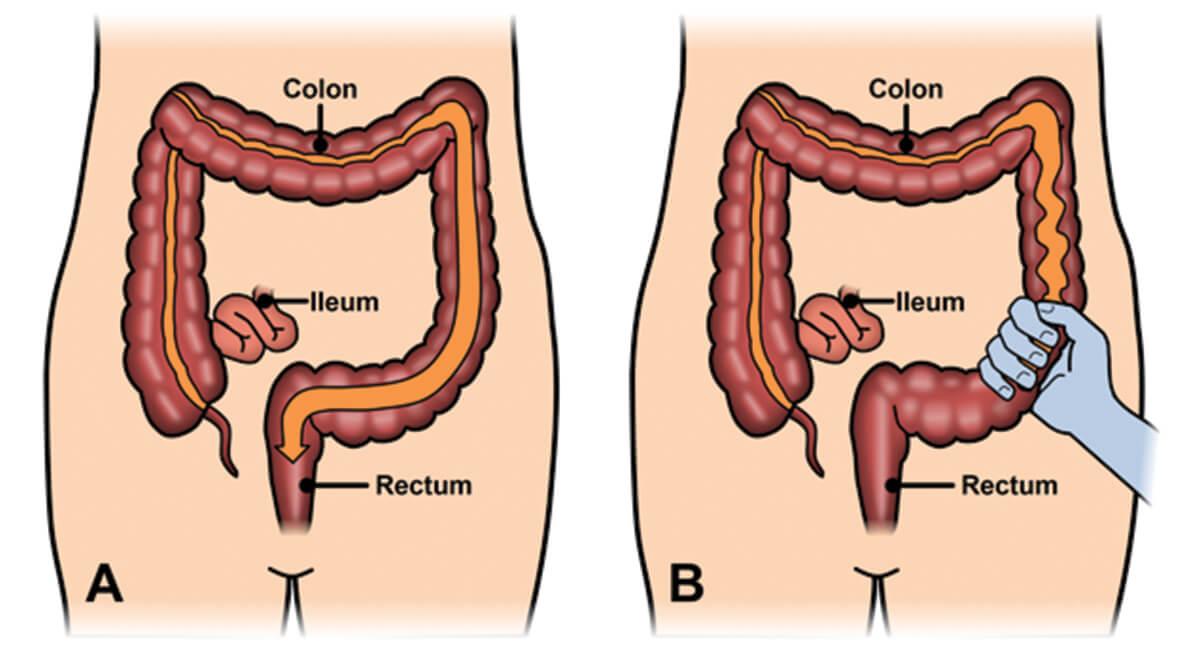
Introduction
IBS (Irritable Bowel Syndrome) is a functional gastrointestinal disorder that affects the large intestine. It is characterized by a group of symptoms that include abdominal pain, bloating, constipation, diarrhoea, and bowel movement inconsistency.
Irritable bowel syndrome is not a disease. It’s a functional disorder that commonly affects the large intestine (colon). IBS can be subdivided into constipation-predominant, diarrhoea-predominant, and alternating diarrhoea and constipation. The signs and symptoms are chronic, recurrent, relapsing, and long-lasting. IBS often overlaps with other functional disorders like fibromyalgia, headache and shows genitourinary symptoms. Smiles Gastroenterology provides the best IBS treatment in Bangalore, that relieves the person from the disorder.
Request an Appointment at Smiles
What Are the Symptoms of IBS?
- ● Cramping
- ● Muscle pain
- ● Mucus in stools
- ● A sensation of incomplete bowel movement
- ● Diarrhoea/constipation
- ● Gas and flatulence
- ● Dyspepsia
- ● Vomiting
- ● Food intolerance
- ● Difficulty in passing stools
- ● Fatigue and difficulty in sleeping
What Causes IBS?
- ● Abnormal gastrointestinal (GI) tract movements
- ● Sensory and motor disorder in the colons
- ● Dietary allergies and food sensitivities
- ● Stress
- ● Neurological distress
- ● Brain and gut axis dysregulation
- ● Decreased serotonin level
- ● Changes in gut microbes
- ● Muscle contractions in the intestine
- ● Psychological factors
How is IBS Diagnosed?
Effective diagnosis of IBS can be made using Rome III criteria. This involves the absence of red flag signs, supportive enzymes, which include defection staining, the urgency of feeling incomplete bowel movement, passing mucus, and bloating.
Rome III criteria for the diagnosis of Irritable Bowel Syndrome
Recurrent abdominal pain or discomfort for at least three days/month in the last three months, associated with two or more of the following:
- Changes in the frequency of stool
- Change in the form or appearance of stool
Red flag signs and symptoms for the diagnosis of IBS
Some signs and symptoms that indicate IBA are:
- Unintentional and unexplained weight loss
- Rectal bleeding
- Anaemia
- Inflammatory masses for inflammatory bowel disease
- Abdominal masses
Investigation to rule out organic causes
To diagnose IBS, the doctor may ask to undergo the following tests:
- Complete blood count (CBC) test
- Erythrocyte sedimentation rate (ESR)
- C-reactive protein (CRP)measure
Lab tests to identify IBS
- Stool examination to detect parasites
- Antibodies for coeliac disease
- Hydrogen breath test
Additional tests to diagnose IBS
- Flexible sigmoidoscopy: This test examines the lower part of the colon (sigmoid) with a flexible tube-like device called a sigmoidoscope.
- Computerised tomography (CT) scans: CT scan provides the cross-sectional image of the internal organ.
- Colonoscopy
How is IBS Treated?
Therapeutic approach
The therapeutic approach to treat IBS involves identifying associated factors and treatment. The associated factors include:
- ● Stress
- ● Anxiety
- ● Social phobia
- ● Depression
- ● Panic disorder
- ● Substance abuse
Dietary modifications
- ● Elimination of items that appear to produce symptoms, such as gas-forming food (lentils, beans, legumes)
- ● Reducing intake of Low FODMAP (Fermentable oligo Di Mono-saccharide And Polyols) carbs. These are short-chain carbohydrates that are poorly absorbed by the small intestine.
- ● Consumption of a high fibre diet may improve symptoms of constipation and diarrhoea.
- ● Limitation of alcohol and caffeine consumption.
Pharmacological therapies for the treatment of IBS
Based on the signs and symptoms of IBS, the following medicines may be suggested:
- ● Antispasmodics – These are the drugs that are used to treat muscle spasm caused by IBS. Dicyclomine, Hyoscine N- butyl bromide and peppermint oil are some of the examples of antispasmodic drugs.
- ● Tricyclic antidepressant – Tricyclic antidepressants are drugs that are used to treat depression. Imipramine and Amitriptyline are examples of antidepressants.
- ● Antidiarrheal drugs – Antidiarrheal drugs are used to delay faecal transit and increase colonic sedimentation contractions. Loperamide, Cholestyramine resin are examples of antidiarrheal drugs.
- ● Probiotics – Probiotics are live microorganisms that help to restore intestinal floras and help in the digestive process. Although they have been associated with the improvement of symptoms, benefits, and the efficacy of the strains is uncertain.
- ● Selective serotonin reuptake inhibitors (SSRIs) – SSRIs are a class of drugs that are used for their antidepressant and analgesic properties to treat IBS. Fluoxetine and Sertraline are examples of SSRIs.
- ● Anticholinergic medication – Medicines like dicyclomine (Bentyl) can help reduce painful bowel spasms. Dicyclomine is mostly prescribed for patients who experience bouts of diarrhea. It is generally safe but may cause constipation, blurred vision, and dry mouth.
- ● Medication specifically designed to treat IBS
- ● Lotronex is used to treat severe diarrhoea.
- ● Eluxadoline is also used to treat diarrhea-predominant IBS
- ● Lubiprostone is used to treat chronic constipation and IBS disorder.
What is the Result of IBS Treatment?
Risk factors associated with irritable bowel syndrome include:
- ● Gender – IBS is nearly twice as common in female as male
- ● Environmental factors
- ● Genetic factors
- ● Bacterial outgrowth
- ● Food intolerance/sensitivities
- ● Altered hormone regulation
Request an Appointment at Smiles
FAQ's
Can IBS Go Away Forever?
Can IBS Lead to Crohn's Disease?
Does Lactose Intolerance Cause IBS?
Does Stress Contribute to IBS? How?
Is there any Particular Test for IBS?
Does IBS Get Worse with Age?
Need Help?
For any Information about our Locations, Doctors or Treatments.
